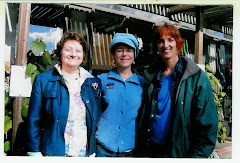Independence Day, Israel national holiday, marks Israel’s Declaration of Independence with the end of the British Mandate. It is the only full holiday in the calendar decreed by law without a tradition of hundreds or thousands of years.
Independence Day is on the fifth day of the Jewish month of Iyar (from the end of April till mid-May), the day in which David Ben-Gurion, the state’s first prime minister, declared the country’s independence in 1948. It was declared a full holiday in a law enacted in the Knesset in 1949. Over the years various traditions evolved to celebrate the holiday, and it is now marked by family picnics in scenic spots all over the country.
Independence Day celebrations begin on the evening of the fifth of Iyar with the end of Yom Hazikaron, the Remembrance Day for the Fallen of Israel’s Wars, with special ceremonies marking the transition from mourning to celebration. The main ceremony is held in Har (Mount) Herzl in Jerusalem. During Independence Day, the World Bible Quiz is held in Jerusalem and the prestigious Israel Prizes are distributed to the year’s winners in a special ceremony.
Most businesses are closed on Independence Day, but cafes restaurants and other places of entertainment are open because it is not a religious holiday.
HOLIDAY CUSTOMS
Flags – Many Israelis fly flags from their houses, porches or cars, often with colorful decorations.
Entertainment Stages – Because of Independence Day’s profoundly secular nature, a tradition of evolved of free entertainment by performers, dancers and comics on stages set up in the center of cities and other communities on the eve of Independence Day. The shows are often accompanied by fireworks. The main streets of towns and cities are usually packed with people.
Barbeque - Independence Day has become Israel’s unofficial barbeque holiday with families picnicking huge amounts of meat in every green spot they can find in the country.
Visits the IDF camps – Many of the army’s camps are open to the public on Independence Day, offering Israelis a chances to see arms, navy ships, tanks and aircraft.
Israeli Movies - Local channels devote all of their programming to the holiday and often screen old Israeli movies which have become cult items.
Prayer – Even though this is a national and not a religious holidayt, religious Zionists tend to say a special prayer composed by the chief rabbinate. This prayer sometimes includes blowing a shofar (a ram’s horn).
IMPORTANT INFORMATION
Most sites in the countryside are usually packed on Independence Day, also because this is the only holiday in which both religious and secular Israeli Jews can travel. Since so many Israelis use this day to visits these sites, tourists might wish to stay inside the cities, the main streets of which are also full of people.
 Yom Ha'atzmaut
Yom Ha'atzmaut




No comments:
Post a Comment